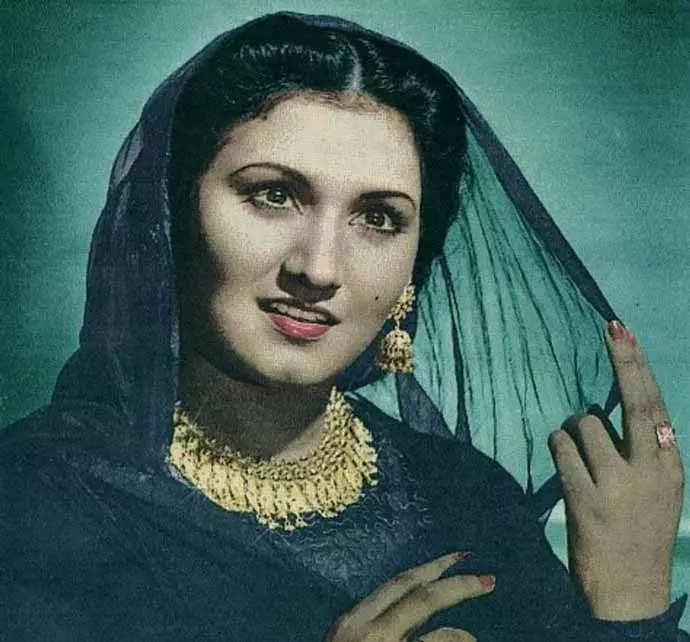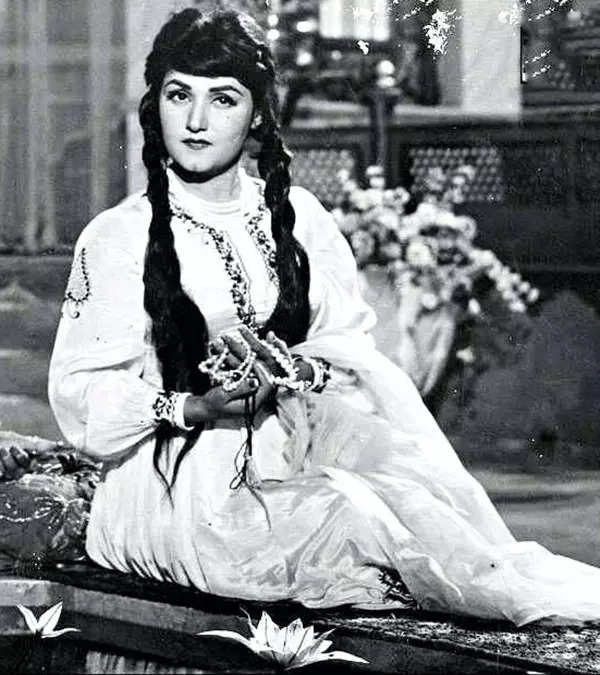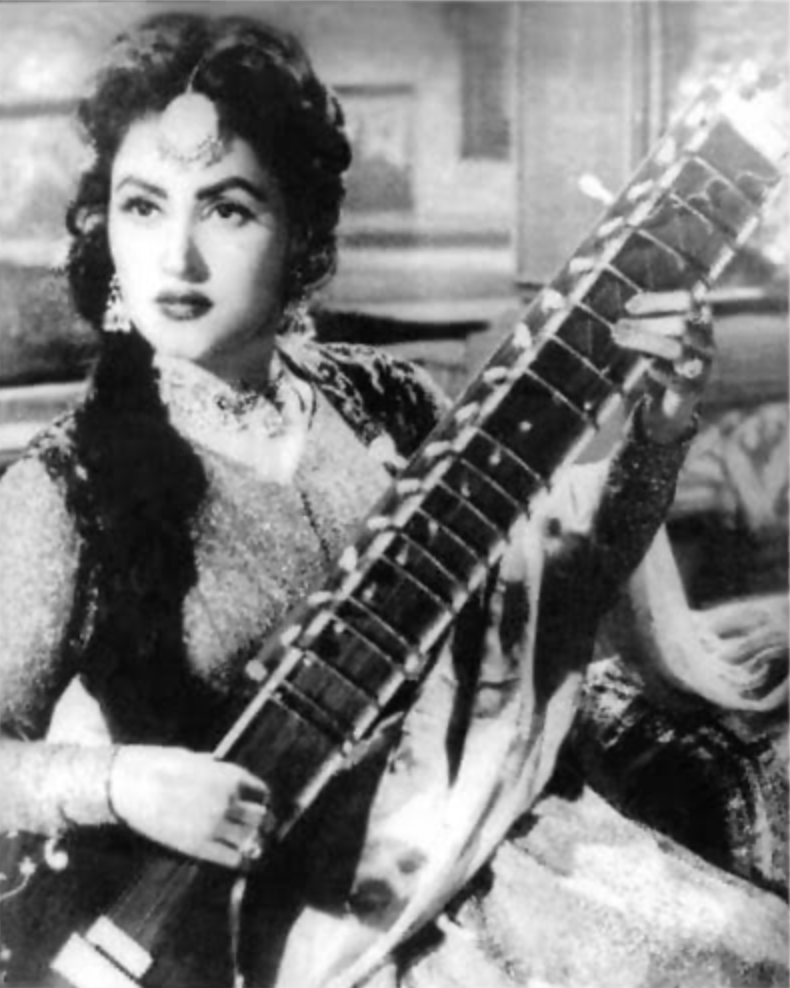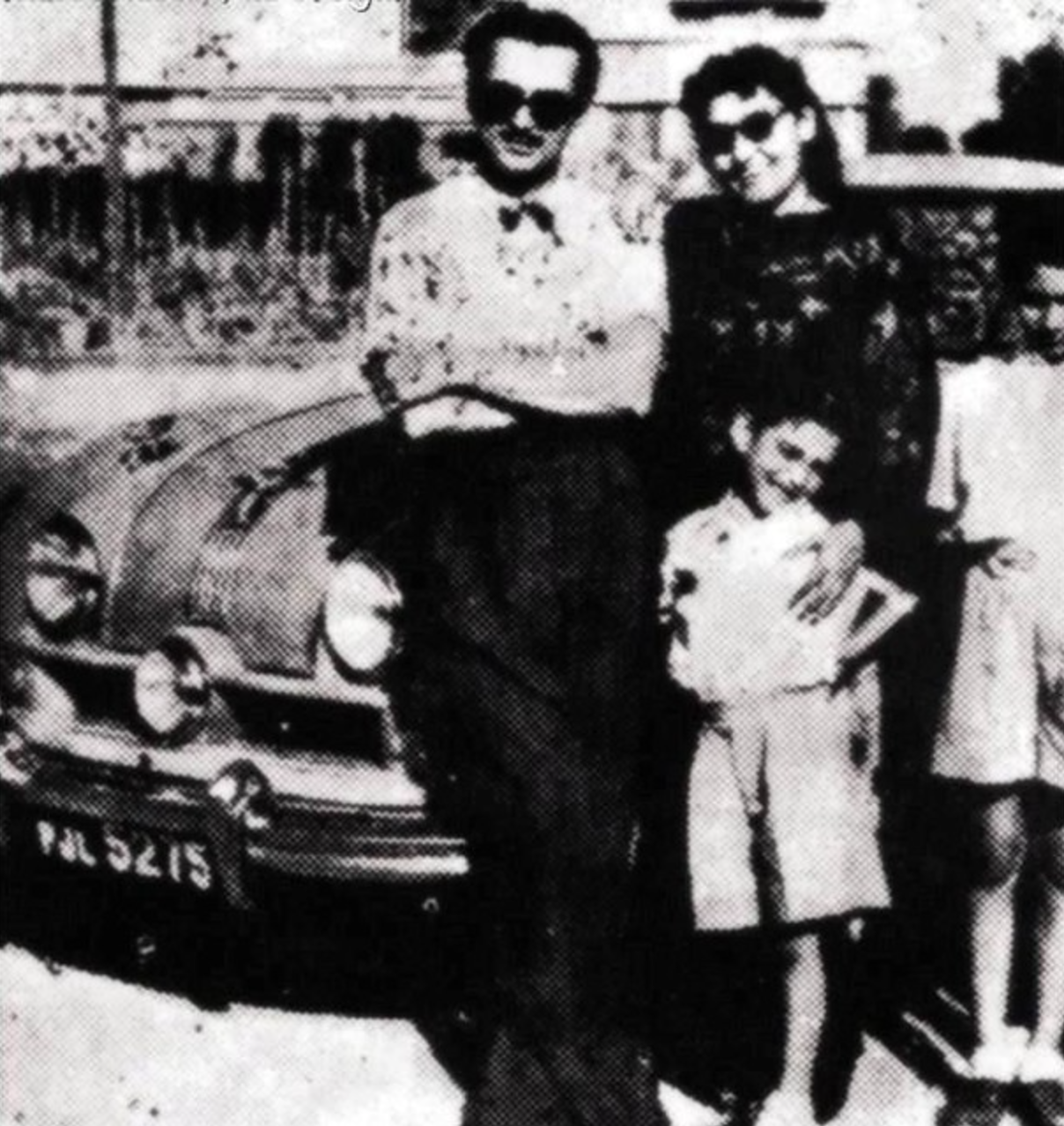
Noor Jehan was India's most famous singer and actor. She had become a household name with movies such as 'Khandaan' (1942), 'Naukar' (1943), 'Dost' (1944), 'Zeenat' (1945), 'Village Girl' (1945), 'Badi Ma' (1945), 'Anmol Ghadi' (1946) and 'Jugnu' (1947). Noor is respectfully called 'Madam' in Pakistan. Her career was arguably better in Pakistan than in India when she moved from Mumbai to Lahore after the India-Pakistan partition in 1947. It is believed that Noor Jehan shaped Pakistani film music the way Lata Mangeshkar did to Hindi film music. Noor received more than fifteen 'Nigar Awards' for Best Female Playback Singer—eight for best Urdu Singer Female and the rest for Punjabi playback. She was also honoured with the 'Singer Of Millennium' award. Noor recorded over 18,000 songs in Urdu, Punjabi, Pashto, Sindhi and Persian. Along with Ahmed Rushdi, she holds the record for giving voice to a large number of movie songs in the history of Pakistani cinema.
In This Pic : noor jehan, goldenframes
Read More
Noor Jehan was born as Allah Rakhi Wasai to Imdad Ali and Fateh Bibi in Kasur, Punjab, Pakistan. She was one of the eleven children in the Punjabi Muslim family. At the age of six, Jehan began to sing and showed a keen interest in various styles, including traditional folk and popular theatre. Noor Jehan drew the attention of Punjabi musician Ghulam Ahmed Chishti when she was only nine. He later introduced her to the stage in Lahore. Ghulam Ahmed Chishti composed some ghazals, na`ats and folk songs for her to perform. When she was eleven, she learned the Patiala Gharana traditions of Hindustani classical music and the classical forms of thumri, dhrupad and khyal under Ustad Ghulam Mohammad in Kolkata.
In This Pic : noor jehan, goldenframes
Read More
Jehan was keen on breaking into acting or playback singing. Once her vocational training finished, Noor pursued a career in singing alongside her sister in Lahore and would usually take part in the live song and dance performances before screenings of films in cinemas. She moved to Kolkata in the early 1930s with her family with the hopes of a break in the movies. Pakistani actress Mukhtar Begum encouraged Allah Wasai and her sisters Eiden Bai and Haider Bandi to join film companies and recommended them to various producers. Mukhtar Begum's husband, Agha Hashar Kashmiri, owned a maidan theatre—a tented theatre to accommodate large audiences. It was here that Wasai received the stage name, Baby Noor Jehan.
In This Pic : noor jehan, goldenframes
Read More
Her older sisters were offered jobs with one of the Seth Sukh Karnani companies—Indira Movietone, later known as the Punjab Mail. Noor Jehan acted along with her sisters Eiden Bai and Haider Bandi in KD Mehra's 'Pind di Kuri' (1935), in which she sang the Punjabi song 'Langh Aja Patan Chanaan Da O Yaar'. It was a hit. After several movies as a child artist, Noor was back in Lahore in 1939. She acted as the female lead in 'Khandaan' (1942) opposite Pran. The movie's success saw her shifting to Mumbai with director Syed Shaukat Hussain Rizvi, who she married later.
(Photo: Noor Jehan in a still from the movie 'Pind di Kuri')
In This Pic : noor jehan, goldenframes
Read More
In 1951, Noor Jehan appeared in a movie in Pakistan. Major studios were burnt down during the Partition riots in Lahore, Pakistan. The city was a prominent filmmaking centre before 1947. Noor Jehan's husband, filmmaker Syed Shaukat Hussain Rizvi, managed to get the old Shorey Studios allotted to him and Noor Jehan with a claim against the property he had left behind in Uttar Pradesh. The studio was rechristened Shahnoor, and its first production was the Urdu-language movie 'Nagina', starring Noor Jehan. The movie was shelved on advice from fellow filmmaker Nazir and his actress wife Swarnalata to launch the Punjabi movie 'Chan Wey' (1951). 'Chan Wey' (1951) was a box office hit and reunited Noor Jehan with her music director from 'Jugnu' (1947), Feroz Nizami. The collaboration resulted in several memorable songs, including 'Tere Mukhde Da Kaala Kaala Til Wey', which proved extremely popular in India.
(In this photo: Noor Jehan with her husband Syed Shaukat Hussain Rizvi)

